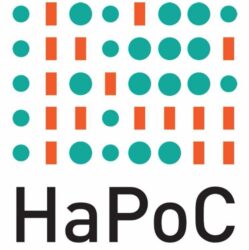*******************************************************************
2nd CALL FOR PAPERS:
CiE 2014: Language, Life, Limits
Budapest, Hungary
June 23 – 27, 2014
IMPORTANT DATES:
Submission Deadline for LNCS: 10 January 2014
Notification of authors: 3 March 2014
Deadline for final revisions: 31 March 2014
FUNDING and AWARDS:
CiE 2014 has received funding for student participation from the European
Association for Theoretical Computer Science EATCS. Please contact the PC
chairs if you are interested.
The best student paper will receive an award sponsored by Springer.
CiE 2014 is the tenth conference organized by CiE (Computability in Europe),
a European association of mathematicians, logicians, computer scientists,
philosophers, physicists and others interested in new developments in
computability and their underlying significance for the real world. Previous
meetings have taken place in Amsterdam (2005), Swansea (2006), Siena (2007),
Athens (2008), Heidelberg (2009), Ponta Delgada (2010), Sofia (2011),
Cambridge (2012), and Milan (2013).
The motto of CiE 2014 “Language, Life, Limits” intends to put a special focus
on relations between computational linguistics, natural and biological
computing, and more traditional fields of computability theory. This is to
be understood in its broadest sense including computational aspects of
problems in linguistics, studying models of computation and algorithms
inspired by physical and biological approaches as well as exhibiting limits
(and non-limits) of computability when considering different models of
computation arising from such approaches.
As with previous CiE conferences the allover glueing perspective is to
strengthen the mutual benefits of analyzing traditional and new computational
paradigms in their corresponding frameworks both with respect to practical
applications and a deeper theoretical understanding. We particularly invite
papers that build bridges between different parts of the research community.
For topics covered by the conference, please visit
http://cie2014.inf.elte.hu/?Topics
We particularly welcome submissions in emergent areas, such as bioinformatics
and natural computation, where they have a basic connection with
computability.
TUTORIAL SPEAKERS:
Wolfgang Thomas (RWTH Aachen)
Peter Gruenwald (CWI, Amsterdam)
INVITED SPEAKERS:
Lev Beklemishev (Steklov Mathematical Institute, Moscow)
Alessandra Carbone (Universite Pierre et Marie Curie and CNRS Paris)
Maribel Fernandez (King’s College London)
Przemyslaw Prusinkiewicz (University of Calgary)
Eva Tardos (Cornell University
Albert Visser (Utrecht University)
SPECIAL SESSIONS:
History and Philosophy of Computing
(organizers: Liesbeth de Mol, Giuseppe Primiero)
Computational Linguistics
(organizers: Maria Dolores Jimenez-Lopez, Gabor Proszeky)
Computability Theory
(organizers: Karen Lange, Barbara Csima)
Bio-inspired Computation
(organizers: Marian Gheorghe, Florin Manea)
Online Algorithms
(organizers: Joan Boyar, Csanad Imreh)
Complexity in Automata Theory
(organizers: Markus Lohrey, Giovanni Pighizzini)
Contributed papers will be selected from submissions received by the PROGRAM
COMMITTEE consisting of:
* Gerard Alberts (Amsterdam) * Sandra Alves (Porto)
* Hajnal Andreka (Budapest) * Luis Antunes (Porto)
* Arnold Beckmann (Swansea) * Laurent Bienvenu (Paris)
* Paola Bonizzoni (Milan) * Olivier Bournez (Palaiseau)
* Vasco Brattka (Munich) * Bruno Codenotti (Pisa)
* Erzsebet Csuhaj-Varju (Budapest, co-chair)
* Barry Cooper (Leeds) * Michael J. Dinneen (Auckland)
* Erich Graedel (Aachen) * Marie Hicks (Chicago IL)
* Natasha Jonoska (Tampa FL) * Jarkko Kari (Turku)
* Elham Kashefi (Edinburgh) * Viv Kendon (Leeds)
* Satoshi Kobayashi (Tokyo) * Andras Kornai (Budapest)
* Marcus Kracht (Bielefeld) * Benedikt Loewe (Amsterdam & Hamburg)
* Klaus Meer (Cottbus, co-chair) * Joseph R. Mileti (Grinnell IA)
* Georg Moser (Innsbruck) * Benedek Nagy (Debrecen)
* Sara Negri (Helsinki) * Thomas Schwentick (Dortmund)
* Neil Thapen (Prague) * Peter van Emde Boas (Amsterdam)
* Xizhong Zheng (Glenside PA)
The PROGRAMME COMMITTEE cordially invites all researchers (European and
non-European) in computability related areas to submit their papers (in PDF
format, max 10 pages using the LNCS style) for presentation at CiE 2014.
The submission site
https://www.easychair.org/conferences/?conf=cie2014
is open.
For submission instructions consult
http://cie2014.inf.elte.hu/?Submission_Instructions
The CONFERENCE PROCEEDINGS will be published by LNCS, Springer Verlag.
Contact: Erzsebet Csuhaj-Varju – csuhaj[at]inf.elte.hu
Website: http://cie2014.inf.elte.hu/
__________________________________________________________________________
ASSOCIATION COMPUTABILITY IN EUROPE http://www.computability.org.uk
CiE Conference Series http://www.illc.uva.nl/CiE
CiE 2014: Language, Life, Limits http://cie2014.inf.elte.hu
CiE Membership Application Form http://www.lix.polytechnique.fr/CIE
AssociationCiE on Twitter http://twitter.com/AssociationCiE
ALAN TURING YEAR http://www.turingcentenary.eu
AlanTuringYears on Twitter http://twitter.com/AlanTuringYear
__________________________________________________________________________
